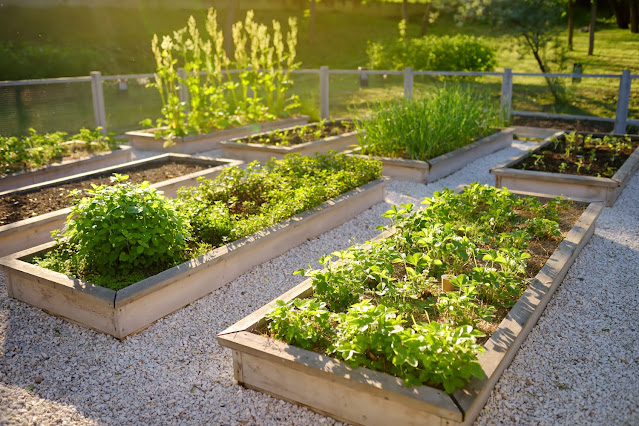Two good reasons to have a garden on a property are to increase the curb appeal and create a beautiful picture of your home. Unfortunately, this can backfire on you if your garden isn't healthy. An unhealthy garden will likely introduce pests, insects, and diseases to your property. As a result, your curb appeal is interfered with, and you're left wondering what the best remedy is.
As the saying goes, 'prevention is better than cure.' The best way to maintain a healthy garden is to prevent diseases and pests from accessing it. If you're looking for ways to sustain a healthy garden, here are some of the best ways.
Take Care Of The Soil
A healthy garden depends on the soil type. If your garden soil is poor, your garden will suffer the consequences. It's vital to note that soil degrades with time. Therefore, it requires regular treatment to ensure it's nutritious enough.
Among the most effective soil treatment solution is adding mulch. Mulch reduces weed growth and feeds the soil with organic matter. You can also add fertilizer to keep the soil fertile. However, before purchasing the fertilizer, ensure to test your soil pH to avoid adding fertilizer with high pH levels. Too much pH in the soil will affect the ability of your plants to take in nutrients, interfering with their optimal growth.
Water It Properly
Water is essential for a healthy garden. However, over-watering your garden can interfere with its integrity. For instance, lots of water can encourage fungi growth in your garden or cause spots on the plants.
On the other hand, the lack of water equals a dead garden. Most plants are unlikely to survive drought. That said, finding a balance for your garden water needs is essential. If you have enough water within reach, your garden is likely to flourish. If you experience water scarcity, it's vital to consider investing in a water tank for water preservation.
As far as watering your garden correctly is concerned, ensure to understand every plant's needs. Some plants require excess water than others. If your plants don't require too much water, avoid overwatering them, lest you destroy them. Also, consider watering the soil instead of the plants to avoid damaging them.
Watch Out For Pests
Pests cause more harm to your garden than you can see. Once these insects have chewed your plants, they leave holes that act as entry holes for viruses and diseases. Many insects are disease carriers and transmit them from plant to plant. To prevent your plants from contracting diseases, ensure the garden and nearby plants are insect-free. However, ensure to use certified insecticides that can't negatively affect the plants' health.
Assess The Plants Before Planting
While you can do everything to ensure your garden soil is in better shape, planting infected plants will make the garden unhealthy. Though treating sick gardens is possible, the best thing is to avoid introducing diseases.
Planting infected plants is the most common way to introduce diseases into your garden. With that in mind, examining every plant before putting it into your garden is vital. But how do you differentiate between a sick and healthy plant?
Sick plants aren't hard to notice. Most of them have dead spots or rotten stems. Others are infested with bugs or insects. Once you introduce such plants into your garden, you'll embark on a challenging journey of returning it to its healthier form.
Control The Weeds
Like pests, weeds can also destroy your garden. They kill your plants by competing for nutrients. They also take up space that could be beneficial for the plants. Fortunately, controlling weeds is easy and affordable. Whether you prefer weeding or using chemicals, ensure nothing else grows in your garden besides your desired plants.
Use Clean Gardening Tools
Gardening tools can transfer toxic elements and bacteria from different surfaces to the garden. For this reason, keeping the tools as clean as possible is vital.
Perform Plant Maintenance
With time, your plants will likely develop dead leaves and limbs. In such cases, your garden might not look beautiful and healthy. Therefore, perform regular plant maintenance to remove dead leaves and stems. For example, deadheading involves the removal of old flowers to create room for new growth. On the other hand, culling will ensure your plants are clean and have enough space to flourish.
Conclusion
Well-kept gardens are ideal for increasing curb appeal and property value. On the other hand, unhealthy gardens are more likely to create a bad picture of your property and are unattractive. Fortunately, you can easily keep your garden healthy and maintained. From treating the soil to planting healthy plants to watering the garden correctly, you can have a beautiful, healthy garden to be envied by many.









































No comments
We love hearing from you! Thanks for leaving us some comment love! If you're a new follower, please leave your link, so we can follow you back!